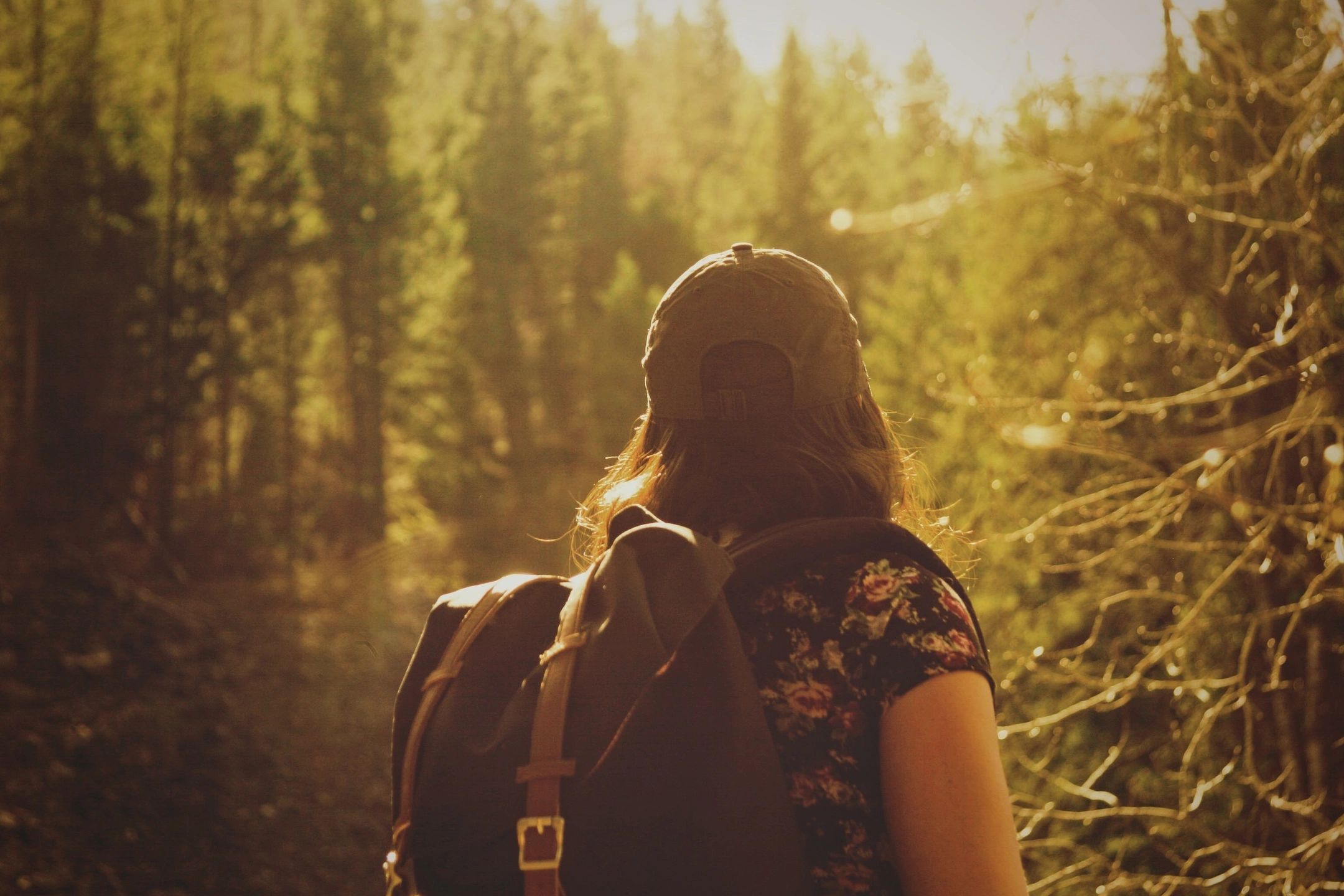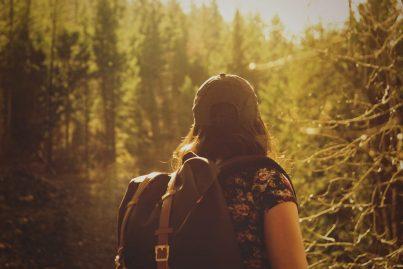In these strange quarantined times, I’ve learned to reconsider nature, maybe even (possibly) enjoy it. Before the shut in, my home was my refuge, where I could escape the stress of the city in cozy, sofa-bound solace. But now, I have nowhere to go but a different part of a condo. Like so many others, my sources of comfort and stress have inverted. I’ve grown sick of Netflix. I’ve fantasized about waiting in line at CVS.
Fortunately, in most states, the mandates around the quarantine allow for daily “recreational walks.” Since walks are now all we have, I decided I would commit to taking one every evening. You could say leisurely walks have never really been my thing. Pre-quarantine, I would engage in long, rushed expeditions to the metro or grocery. My walks were chores leading to other chores. Always either ear-budded or on the phone, I rarely registered the calming, earthy sounds around me: cicadas buzzing, boots snapping leaves. But now I have no place to be – ever. The least I could do is pay attention.
This of course has proven more difficult than it seemed. My first leisurely retreat out of quarantine, there was too much to process. Too much feeling, color, sound, and light beaming out of a non-screen. I needed the buffer of technology or another person. Without a podcast host deadpanning into my ear, I felt too alone in this vast, infinite planet, or too close to the source – whatever the source might be. Just as people are scared to be alone with their thoughts, strolling solo made me feel too vulnerable, too exposed, too connected to the raw earth underneath me.

But even still, I decided I would continue the walks, force this new diversion upon me. I began a ritual: every evening after work, I would lie in bed, scroll through my phone for a half hour, complain to my boyfriend J about how much I didn’t want to take a walk – and then take one. I would throw on some ragged clothes reminiscent of century-old dish rags, cram my pockets with granola bars and hand sanitizer, and go.
I was surprised when after a week of these self-mandated walks, I started to come around to them, even look forward to them. Cycling through various news channels all day, I longed to disconnect and reset–offline. I wanted just a half hour every night where I didn’t have to think about worst case scenarios.
Nature seemed to exist outside of time or place or horror. If you went deep enough into the forest, there were no markers signaling what year or city or state you were in. In nature, I could simply – as the cliche goes – “be.” That was all that was required of me. I just had to exist in a body. It was the easiest hobby I’d ever had: “being.” Suddenly, I felt a click in alignment. Nature and I were existing together, made up of comparable matter, breathing in the same oxygen.
During a time of mass suffering, mass death, rising unemployment, and failed, incompetent leadership, nature offers a horizon of calm. It exists beyond the havoc, removed from the fuming talking heads or tweets from our clown president. Maybe because there were less cars and pollution, or simply because I was actually paying attention, nature seemed to be beaming more luminously than ever before. In J’s neighborhood, there are fields blazed with bloodroots and bluebells, fences cascading with ivy, sharp twists of branches crowding the sky. One day I saw not one, but two, red foxes in the brush. I’d never even seen a red fox before. Nature seemed to be having a moment.
Last Saturday, J and I hiked downslope to Riverbend Park in Fairfax County. Perched on giant boulders, we watched waves sluicing over rocks again and again. I wondered how many years (a hundred? A thousand?) the water repeated those same, unaltered movements. I was comforted by the indifference of the water, how it continued in its reliable rhythms and patterns, despite the sensation of change around it. Repetition – even the kind found in nature – breeds comfort. It gives us something to return to. At a time where nothing feels certain, maybe not even the progression of humankind itself, nature offers an enduring order – a glimpse into a future.
During crises, we can look to nature as an alternate world, an escape from our ceaseless feeds and news cycles. Nature is timeless, reaching beyond the current feeling and moment. As we contend with the unimaginable and our lives settle into this new normal, nature provides a glimmer of hope, a flash of the infinite. It will still be there for us, even when we try to resist it.
Rachel Ament is a DC-based writer who has written for The New York Times, The Paris Review, NPR, Teen Vogue, and Oxygen Magazine, among other publications. She was the editor of Jewish Daughter Diaries: True Stories of Being Loved Too Much By Our Moms.



